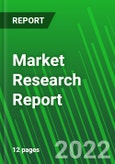Apparel Brands Intensify Collaboration With Supply Chains, Prompted by the EU Strategy for Sustainable and Circular Textiles
Major apparel brands are intensifying collaborations with their supply chains in response to the ambitious EU Strategy for Sustainable and Circular Textiles, which was published by the European Commission in March 2022. Furthermore, the strategy has prompted several organisations to launch new initiatives which are aimed at promoting recycling and circularity.
For example, Euratex (the European Apparel and Textile Confederation) has launched an initiative called ReHubs which calls for the establishment of 150-250 dedicated new recycling centres in Europe in the next few years. The aim of the initiative is to achieve the fibre-to-fibre recycling of 2.5 mn tons a year of Europe's textile waste by 2030. Elsewhere, the CISUTAC (Circular and Sustainable Textiles and Clothing) project aims to remove bottlenecks in the supply chain where they pose a barrier to achieving circularity.
The project will develop new, sustainable and integrated large-scale European value chains in order to minimise the total impact of the textile and clothing industry on the environment. A number of apparel brands are backing work in Scandinavia on the development of new cellulosic fibres made from textile waste.
Elsewhere, the brand Napapijri, which is owned by VF Corporation, is employing mono-materials in the manufacture of its Circular range of outdoor jackets while C&A and Primark have entered into new agreements with Recover - a producer of high quality recycled fibres which have a low impact on the environment - to employ recycled cotton fibres and cotton fibre blends in the manufacture of their products. Hugo Boss, meanwhile, has entered into a partnership agreement with the textile chemicals company HeiQ for the supply of AeoniQ yarn, which is recyclable and made using a closed-loop process.
Who should buy this report?
- Manufacturers of fibres, textiles, clothing and chemicals
- Textile and clothing machinery manufacturers - spinning, weaving, knitting, sewing and import/export
- Textile and clothing brands and retailers like Adidas, H&M etc.
- Educational institutions like universities, fashion schools etc.
- Business consultancy firms
- Textile and clothing trade associations
- Government trade bodies
Table of Contents
INTRODUCTION
- Growing appetite for change
- Mandatory separate textile waste collection
SUSTAINABILITY AND CIRCULARITY RELATED PROJECTS AND INITIATIVES
- The ReHubs initiative
- Industry backing: a business council comprising key companies
- Costs and benefits of the ReHubs initiative
- The Sorting for Circularity Europe project
- The CISUTAC (Circular and Sustainable Textiles and Clothing) project
PRODUCT DEVELOPMENTS AND PARTNERSHIPS
- Recycled cotton: C&A, Primark and Recover
- AeoniQ yarn: Hugo Boss and HeiQ
NEW CELLULOSIC FIBRES
- Renewcell: Circulose
- Infinited Fiber Company
MAKING MONO-MATERIAL GARMENTS AS A WAY OF REDUCING WASTE GENERATED BY FAST FASHION AND ALLOWING FOR EFFECTIVE RECYCLING
Executive Summary
Major apparel brands and organisations are accelerating product innovation and supporting initiatives to promote recycling and circularity in response to an ambitious new EU strategy, according to “Apparel brands intensify collaboration with supply chains, prompted by the EU Strategy for Sustainable and Circular Textiles.
The EU Strategy for Sustainable and Circular Textiles, which was published by the European Commission in March 2022, sets out actions to ensure that textile products placed on the EU market from 2030 are durable and recyclable, free from hazardous substances, and made as much as possible from recycled fibres.
Also, the strategy has a provision for addressing problems of mounting waste resulting from soaring demand for fast fashion. It calls on apparel brands to reduce the number of collections they launch each year, and it urges the clothing industry to minimise the carbon footprint of fast fashion and its impact on the environment.
In response, a number of brands are backing work in Scandinavia on the development of new cellulosic fibres made from textile waste.
Renewcell, a textile recycling company based in Stockholm, Sweden, has constructed a facility for producing Circulose -- a dissolving pulp which is made from cotton-rich textile waste and can be turned into new viscose fibres and filaments.
Also, Infinited Fiber Company, a biotechnology company based in Espoo, Finland, is converting a disused mill into a facility for producing Infinna -- a premium textile fibre which is made using cellulose-based raw materials.
Elsewhere, Napapijri -- an outdoor apparel supplier based in Aosta, Italy, which is owned by VF Corporation -- has gone the extra mile in working to secure Cradle to Cradle Gold certification for its Circular range of outdoor jackets, which are made using 100% mono-materials.
Luxury fashion house Hugo Boss, meanwhile, has entered into a partnership agreement with the textile chemicals company HeiQ for the supply of AeoniQ -- a cellulosic filament yarn which is recyclable and made using a closed-loop process.
In addition to apparel brands, the EU Strategy for Sustainable and Circular Textiles has prompted several organisations to launch new initiatives which are aimed at promoting recycling and circularity.
For example, Euratex (the European Apparel and Textile Confederation) has launched an initiative called ReHubs which calls for the establishment of 150-250 dedicated new recycling centres in Europe in the next few years. The aim of the initiative is to achieve the fibre-to-fibre recycling of 2.5 million tons a year of Europe’s textile waste by 2030.
Elsewhere, the CISUTAC (Circular and Sustainable Textiles and Clothing) project aims to remove bottlenecks in the supply chain where they pose a barrier to achieving circularity.
The project will develop new, sustainable and integrated large-scale European value chains in order to minimise the total impact of the textile and clothing industry on the environment.
Companies Mentioned
- C&A
- HeiQ
- Hugo Boss
- Infinited Fiber Company
- Napapijri
- Primark
- Recover
- Renewcell
- VF Corporation








